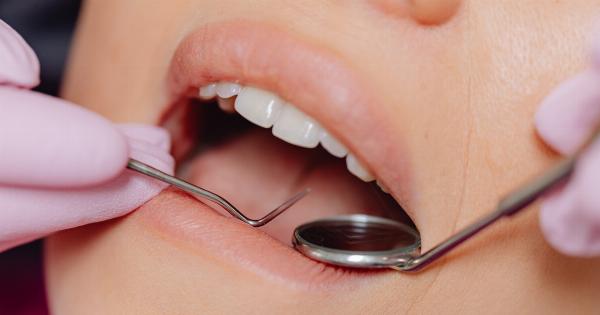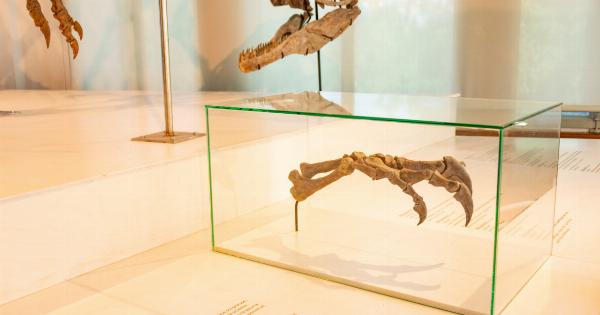Jaw pain can be a distressing and uncomfortable experience that can affect various aspects of daily life.
From talking and eating to even just opening the mouth, any discomfort in the jaw can significantly impact our ability to perform these basic functions. Jaw pain can be caused by a variety of factors, both temporary and chronic. In this article, we will explore some of the most common causes of jaw pain and discuss potential treatment options.
1. Temporomandibular Joint Disorders (TMD)
The temporomandibular joint (TMJ) is the joint that connects the jawbone to the skull. TMJ disorders, also known as TMD, can cause jaw pain and discomfort.
Some common symptoms of TMD include jaw clicking or popping, difficulty in opening the mouth wide, and pain in the jaw joint or surrounding muscles. TMD can be caused by factors such as teeth grinding, jaw clenching, arthritis, or injury to the jaw. Treatment options for TMD include the use of oral appliances, physical therapy, stress management techniques, and in severe cases, surgery.
2. Teeth Grinding (Bruxism)
Teeth grinding, also known as bruxism, is a condition where individuals clench or grind their teeth unconsciously. This habit typically occurs during sleep, but it can also happen during the daytime.
Teeth grinding can lead to jaw pain, headaches, and worn-down teeth. Factors such as stress, anxiety, and misaligned teeth can contribute to the development of bruxism. Wearing a mouthguard during sleep is a common treatment for teeth grinding.
Additionally, stress management techniques, behavioral therapy, and addressing any underlying dental issues can also help alleviate symptoms.
3. Dental Problems
Dental problems such as tooth decay, gum disease, or infected teeth can cause jaw pain. These conditions can affect the nerves in the jaw, leading to discomfort or even radiating pain.
Additionally, dental procedures such as wisdom tooth extraction or dental implants can also result in temporary jaw pain. Treating the underlying dental issue is crucial in resolving jaw pain caused by dental problems. Regular dental check-ups and maintaining good oral hygiene are essential for preventing dental issues that may contribute to jaw pain.
4. Sinus Infections
Sinus infections can cause referred pain in the jaw area, leading to discomfort and tenderness. When the sinuses become infected or inflamed, they can put pressure on the surrounding structures, including the jaw joint.
This can result in jaw pain, facial pain, and headaches. Treating the underlying sinus infection with antibiotics or other recommended medications can help alleviate the associated jaw pain.
5. Trauma or Injury
Trauma or injury to the jaw, such as fractures, dislocations, or muscle sprains, can cause acute or chronic jaw pain. These injuries can occur due to accidents, sports-related incidents, or physical altercations.
Severe trauma may require immediate medical attention, while less severe injuries can be managed with rest, ice packs, pain medications, and physical therapy. Seeking medical attention promptly is crucial to ensure appropriate diagnosis and treatment.
6. Arthritis
Arthritis is a condition that causes inflammation and stiffness in the joints, including the temporomandibular joint (TMJ). Arthritis in the jaw can lead to jaw pain, difficulty in opening the mouth, and a clicking or popping sound when moving the jaw.
Rheumatoid arthritis and osteoarthritis are the two most common types of arthritis that can affect the jaw joint. Treatment may include anti-inflammatory medications, physical therapy, lifestyle modifications, and occasionally surgical interventions.
7. Stress and Anxiety
Stress and anxiety can manifest physically in various ways, and jaw pain is one of the common symptoms. When stressed or anxious, individuals may clench their jaw or grind their teeth, leading to jaw pain or discomfort.
Awareness of these habits and practicing stress management techniques such as meditation, counseling, or relaxation exercises can aid in reducing jaw pain caused by stress and anxiety.
8. Malocclusion
Malocclusion refers to misalignment of the teeth and jaw. When the upper and lower teeth do not come together properly, an individual may experience uneven pressure on the jaw joints, leading to jaw pain.
Orthodontic treatment, such as braces or aligners, may be recommended to correct the misalignment and alleviate the associated jaw pain.
9. Nerve Conditions
Some nerve conditions, such as trigeminal neuralgia or glossopharyngeal neuralgia, can cause jaw pain. These conditions involve irritation or damage to the nerves that control facial sensation and movement.
Individuals may experience sudden, severe episodes of pain in the jaw, sometimes triggered by activities like eating or talking. Medications, nerve blocks, and in some cases, surgery may be considered in the treatment of these nerve conditions.
10. Harmful Oral Habits
Certain oral habits, such as nail-biting, pen-chewing, or biting on hard objects like pencils or ice, can strain the jaw muscles and cause pain.
Individuals engaging in these habits may experience jaw discomfort or even develop temporomandibular joint disorders. Breaking these habits through awareness and behavioral modifications can help alleviate jaw pain caused by harmful oral habits.






























